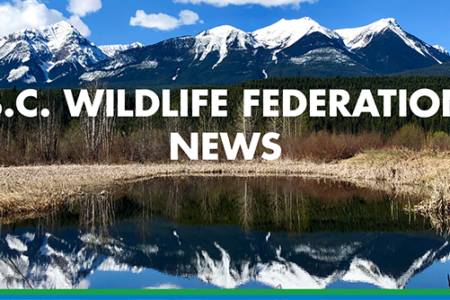MORE ANSWERS FROM CANDIDATES
This is the second set of five questions for our candidates, and their answers. A third set will appear later.
For this set, I have included both candidates’ answers in one article. To choose the order in which their answers appeared, I went with alphabetical order based on their last names. As explained in an earlier item, the Conservative candidate had originally agreed to answer questions, but later became “unable to participate.”
Section II: Climate Change
Q 1: Do you think climate change is a problem? Please explain the factual basis for your response.
NDP (Richard Cannings): Climate change is the most important challenge facing the world today. Climate scientists are essentially unanimous in their finding that climate change is real, and that we are causing it through our unprecedented and unrelenting release of carbon dioxide into the atmosphere. We are at a critical point where we must take bold action to quickly and significantly curtail our carbon dioxide outputs, or face a barrage of environmental consequences—droughts, floods, superstorms, wildfires, sea level rise, acidification of the oceans, and more. These events will increasingly impact the functioning of the world economy and the health and welfare of people around the globe. We are already feeling the results here in southern BC, with increased forest fire activity, reduced snow packs leading to lower domestic water availability, and decreased river flows affecting salmon spawning. All projections show that this situation will worsen over the next few decades, and that there is a serious penalty for procrastination—the longer we wait, the harsher the constraints we will have to deal with to remedy the problem.
Liberal (Connie Denesiuk): Climate Change is a serious problem.Climate change is already beginning to transform life on Earth. Around the globe, seasons are shifting, temperatures are climbing and sea levels are rising. And meanwhile, our planet must still supply us – and all living things – with air, water, food and safe places to live. If we don’t act now, climate change will rapidly alter the lands and waters we all depend upon for survival, leaving our children and grandchildren with a very different world. Certainly, in British Columbia we are aware of our “summer of fire”, and that this might be the new norm.
Q 2: A report of the International Energy Agency states that the world must not use more than one-third of known fossil fuel reserves between now and 2050 to avoid exceeding an increase in global average temperature (over the pre-industrial average) of 2 degrees C. Should that finding affect Canadian energy policy, and if so, how?
NDP (Richard Cannings): The critical feature to an effective Canadian energy policy is a price on carbon so that we can properly regulate our carbon dioxide emissions. The NDP will do this through a cap-and-trade system that would put hard limits on the amount of fossil fuels used in Canada. This would result in a reduction of Canada’s carbon emissions to 34 per cent below 1990 levels by 2025 and 80 per cent below by 2050. We set out these targets in Jack Layton’s Climate Change Accountability Act, which was reintroduced in this Parliament. We are proud to have the strongest targets of any party, and the NDP has a concrete plan for Canada to meet our international obligation to address climate change. This is a plan to transition to a renewable energy economy, so that we will not need to use all the fossil fuel reserves already identified.
Liberal (Connie Denesiuk): Liberals understand that the environment and creating a more sustainable future are among the most pressing challenges we face as Canadians. Action against climate change is a key inter-generational responsibility that we owe to our children and grandchildren.
While many of our provinces and territories have already introduced their own initiatives, history shows that Canada works best when all orders of government work together to solve problems that matter to Canadians – as we have on issues like health care and pensions. A future Liberal government will take a medicare approach to fight climate change and reduce greenhouse gas emissions. This means provincial and territorial governments will have the flexibility to design their own policies to meet these commitments, including their own carbon pricing policies. We will provide targeted federal funding to help achieve these goals, in the same way the federal government supports health care in Canada. Further, a Liberal government would welcome provincial and territorial leaders to attend the Paris climate conference, and within 90 days, hold a First Ministers meeting to work together on a framework for combating climate change. Central to this would be the creation of national emissions-reduction targets.
Liberals are serious about engaging in an open and innovative partnership with the provinces and territories, as we work together to fulfill our environmental responsibilities. That’s real change.
Q 3: Another report, by a group of climate scientists and other experts, indicates that a 2 degree C. rise in average global temperature will be too much and will be catastrophic for life on earth. (The current rise in global average temperature so far is still less than 1 degree.) Here is a link to a discussionon that report, in the Washington Post, containing a link to the report itself. Please give us your thoughts on the report, and on recent dry spells, droughts, wildfires, floods, temperature anomalies, violent windstorms and so on that many parts of the world (including BC) have been experiencing in recent times.
NDP (Richard Cannings): I think the main point to take away from this discussion is that, while human-caused climate change is a reality, and its effects will be significant, the precise timing and severity of those threats is difficult to model decades into the future. Suffice to say that there will be impacts to the world’s economy and environment over the next few decades because of climate change whether we keep the temperature rise to under 2°C or not, but whether these impacts will be catastrophic in the near term (they certainly will be in the long term if we take a business-as-usual course) remains to be seen. The fact that each year is warmer than the last, and extraordinary weather events seem to happen every week both here in Canada and elsewhere, is enough to suggest that we should be doing everything possible to bring our carbon dioxide footprint down as quickly as possible, and bold action from our governments is necessary to do that. This year has been a taste of things to come for the southern Interior of BC, and should be a call to action for governments to tackle climate change.
Liberal (Connie Denesiuk): A Liberal government will provide dedicated funding to invest in a broad range of projects, including but not limited to: local water and waste-water facilities, climate resilient infrastructure, clean energy, and clean-up of contaminated sites to facilitate new construction. We will also support efforts to prepare for changing weather patterns, such as: protections against wildfires, improved storm water systems to diminish the impact of urban floods, additional dams and dikes to prevent overland or coastal flooding, the reinforcement of energy systems in the face of possible ice storms, and the reinforcement of infrastructure to confront melting permafrost in our North. These and other efforts will be undertaken in partnership with other orders of government and based on the best available science. We will boost investment in green infrastructure by nearly$6 billion over the next four years, and almost $20 billion over ten years.
Q 4: The recent International Energy Agency report calls for phasing out fossil fuel subsidies. Do you agree that all government subsidies to fossil fuel production, transportation, and consumption must be phased out? Please explain your reasoning.
NDP (Richard Cannings): An NDP government would phase out subsidies to fossil fuel industries and instead promote renewable energy industries such as solar. This would allow Canada to transition towards a low-carbon future. There are thousands of good jobs ready to be created in green industries (there already are more jobs in that sector than in the Alberta oil sands) and we need to kick-start those industries to get Canada back on track.
Liberal (Connie Denesiuk): We will fulfill Canada’s G-20 commitment to phase out subsidies for the fossil fuel industry. The next step will be to allow for the use of the Canadian Exploration Expenses tax deduction only in cases of unsuccessful exploration. The savings will be redirected to investments in new and clean technologies.
The federal government has many roles to play in reducing greenhouse gas pollution, supporting research and science, creating the right conditions for clean technology to thrive, working with the provinces and territories to set targets, and supporting the initiatives that will get us there.
Q 4: How should Canada control development of its tar sand deposits; should Canada encourage further expansion of tar sands production, or should we be limiting it and diminishing production? Please explain how your response is consistent with attempting to slow climate change, or if not, why not.
NDP (Richard Cannings): Expansion of the Alberta tar sands production is predicated on new pipelines being built—present production levels use the pipelines already in place. The NDP has pledged that any new pipeline project will be assessed both for its impact on land and water environments as well as its future impact on our national carbon budget. That is, we will take climate change into account whenever we analyze a project.
Liberal (Connie Denesiuk): Without public trust, Canada’s environmental assessment processes are increasingly paralyzed. That means not only are we not doing a good enough job at protecting our environment, but we are not getting our resources to market. We need clear and efficient processes that have reasonable, even-handed rules, clear beginning and ending points, and decisions that can be relied on. We will launch an immediate, public review of Canada’s environmental assessment processes. Based on this review, a Liberal government will replace Mr. Harper’s changes to the environmental assessment process – with a new, comprehensive, timely, and fair process.
As part of this review, we will modernize and rebuild trust in the National Energy Board. We will ensure it has broad regional representation and sufficient expertise in fields such as environmental science, community development, and Indigenous traditional knowledge.
We will stop the practice of having federal Ministers interfere in projects while they are being assessed.
We will explore, consult, and work collaboratively to move towards a system where federal environmental assessments of projects include an analysis of upstream impacts and the greenhouse gas emissions resulting from the projects being assessed.
We will, in full partnership and consultation with First Nations, Inuit, and Métis Peoples, undertake a full review of regulatory law, policies, and operational practices. This will ensure that the Crown is fully executing its consultation, accommodation, and consent obligations on project reviews and assessments, in accordance with its constitutional and international human rights obligations. These include Aboriginal and Treaty rights and the United Nations Declaration on the Rights of Indigenous Peoples. We recognize the relationship between Indigenous Peoples and the land, and will respect legal traditions and perspectives on environmental stewardship
This ends the second set of questions for our candidates. There will be one more set of five questions published later.

























